Changes to VAT refunds
Previously, according to the Law on Value Added Tax and Decree 209 guiding, since 2014, many unprocessed agricultural, forestry and aquatic products have been classified as not subject to value added tax. This policy contributes to reducing input costs for production, while simplifying tax declaration procedures for farmers and purchasing enterprises.
However, after 11 years of application, the Law on Value Added Tax (amended) has adjusted the regulations. From being tax-exempt, many input items in the agricultural, forestry and fishery groups are now subject to tax rates of 5% to 10%. When businesses export, they will receive a tax refund.
It is worth discussing that the law has regulated a stricter tax refund process than before, causing businesses to take more time to recover capital and increasing cash flow pressure. Specifically, exporting businesses are only refunded value added tax when suppliers have declared and paid value added tax on invoices issued to businesses.
This regulation requires enterprises to have a mechanism to check and review the tax compliance status of input suppliers, in order to avoid tax fraud.
In addition, instead of being refunded monthly or quarterly as before, businesses are now only refunded when the accumulated tax reaches 300 million VND, prolonging the payback cycle.
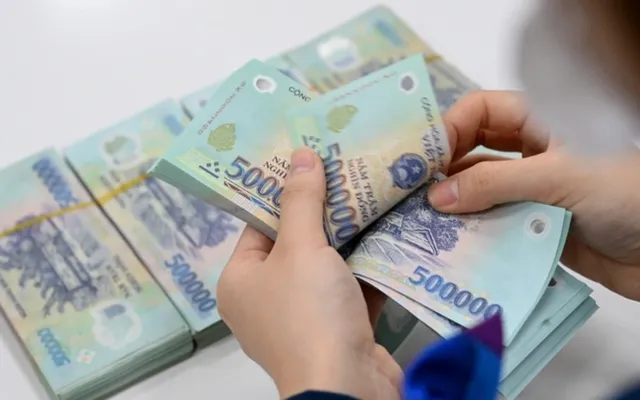
Illustration photo.
Businesses face difficulties in VAT refunds
The "pay first - refund later" tax policy aims to be transparent, fair and prevent budget loss, but when implemented, it is creating many challenges for agricultural, forestry and fishery enterprises - units that are heavily dependent on seasons, markets and slow capital turnover.
Every year, DETECH Coffee Joint Stock Company needs about 1,000 billion VND to purchase raw materials and process coffee for export. Temporarily paying 5% value added tax means the company has to spend an additional 50 billion VND - a not small amount of capital.
More difficult, businesses have to work with dozens of suppliers. If just one unit has a problem with invoices or has not completed its tax obligations, the entire tax refund dossier of the business can be suspended.
Ms. Dao Ngoc Anh - Chairman of the Board of Directors of DETECH Coffee Joint Stock Company said: "We also have to take responsibility for the business of the suppliers. For example, we buy from 10 suppliers, 9 suppliers pay taxes, 1 supplier has a risk of not paying taxes, so the money to receive tax refund is also very risky, we do not know when we will receive that tax refund".
"Businesses have hundreds of thousands of invoices that cannot be controlled. Although it takes time to check those, this month they are still operating, next month they are off, the business is still implicated," said Mr. Tran Kim Gia - Executive Committee Member of the Vietnam Pulp and Paper Association.
Mr. Le Minh Cuong - Representative of Vinh Hiep Company Limited in Hanoi and the Northern Region said: "We have to advance 5% to pay export tax and then wait for the refund, but the time is long. Even for a few months, it still puts a lot of financial pressure on the business. Because that money is sometimes borrowed from the bank. We have to calculate the working capital to rotate the capital, but we are passive about the refund of that 5% tax".
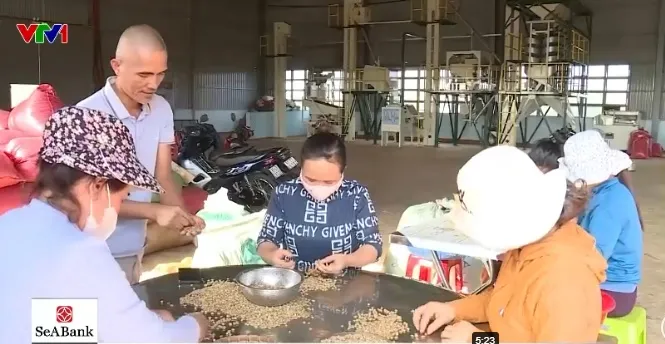
The "pay first - refund later" policy has caused difficulties for many agricultural, forestry and fishery enterprises due to stagnant capital and prolonged business cycles.
A representative of the Vietnam Coffee - Cocoa Association said: It is expected that this year, Vietnam will export about 1.5 million tons of coffee with a turnover of 7.5 billion USD. If a 5% tax is applied, the amount of money businesses have to pay will be up to 375 million USD, equivalent to nearly 10,000 billion VND.
In the context of sharp increases in coffee prices and the US imposing reciprocal tariffs from August 2025, "temporarily paying and waiting for a refund of value-added tax" causes businesses to lack working capital, reducing the competitiveness of Vietnamese coffee compared to other countries.
Mr. Thai Nhu Hiep - Vice President of Vietnam Coffee - Cocoa Association reflected: "The goods we buy to store have to pay 5% input VAT, if not sold then we will not be refunded. The tax arrears in the warehouse are very large, that is one of the difficult links for businesses".
Recently, the Vietnam Animal Husbandry Association sent a document to the Ministry of Finance , requesting the unified application of regulations on value added tax on raw materials for animal feed production. Currently, some local tax authorities apply a tax rate of 5%, while others do not, causing confusion for businesses.
For animal feed products, raw materials account for up to 70% of the cost price. If the input is subject to value added tax but the output is not taxed, the business will not be refunded, production costs will increase, pushing up the selling price, reducing competitiveness - especially when imported animal feed is not subject to tax.
Removing "bottlenecks" in value-added tax policy
Not only the Vietnam Coffee - Cocoa Association and the Vietnam Livestock Association, but also the Vietnam Timber and Forest Products Association, Pepper and Spices Association, Vietnam Food Association... also simultaneously issued documents reflecting the difficulties of businesses when implementing the new value-added tax policy.
Faced with these shortcomings, experts say it is necessary to promptly review and adjust tax policies to suit the production and business characteristics of the agricultural sector, to avoid them becoming barriers, increasing the burden on businesses and affecting key export products.
Experts say that currently, the proportion of exported goods in the agricultural, forestry and fishery groups accounts for 80-90%. Therefore, most of the value added tax is only temporarily collected and then refunded. Temporarily paying and waiting for refund causes businesses to lose working capital and puts more pressure on management agencies. Therefore, it is necessary to quickly adjust policies to suit reality.
Mr. Nguyen Xuan Duong - Former Acting Director of the Department of Animal Husbandry, Ministry of Agriculture and Rural Development (formerly) suggested: "We propose that the State amend the Law. In the event that we cannot amend the Law, we have a solution for the Government to submit to the National Assembly Standing Committee so that we can temporarily postpone the implementation of this regulation."
"On the basis of unified discussions between the Industry Association and the business community, the subjects responsible for the policy, we can recommend the Government to amend the regulations that are causing difficulties for businesses, actually creating unwanted impacts in reality," said Ms. Nguyen Minh Thao - Deputy Head of the Department of Enterprise Development and Business Environment, Institute of Strategy and Economic and Financial Policy, Ministry of Finance.
In the context of increasingly fierce global competition, along with the US imposing tariffs on a number of Vietnamese products, including agricultural products, domestic policies need to accompany and support businesses, instead of creating unnecessary pressures such as temporary payment - then waiting for VAT refunds. If not resolved soon, Vietnam may lose its advantage in the global agricultural value chain.
According to Mr. Tran Quoc Khanh - Standing member of the Prime Minister's Policy Advisory Council: "The VAT change was introduced at a time when exports are expected to face difficulties, economic growth is set to grow at least 8.3%, next year it will be double digits. That is a big issue that needs to be discussed. Collecting and then refunding takes effort and time."
A reasonable policy will help businesses' cash flow not be "clogged", so that each coffee bean, shrimp or bundle of wood can easily overcome the waves and reach the world market in a sustainable way.
Small points in the value added tax policy sometimes create certain challenges in the operation of enterprises. Continuously improving the policy, aiming for more flexibility and suitability with reality will contribute to creating favorable conditions, helping enterprises to be more confident, thereby contributing positively to the overall development of the industry and the economy.
Source: https://vtv.vn/go-vuong-thue-vat-cho-doanh-nghiep-100251016061540572.htm






![[Photo] Dan Mountain Ginseng, a precious gift from nature to Kinh Bac land](/_next/image?url=https%3A%2F%2Fvphoto.vietnam.vn%2Fthumb%2F1200x675%2Fvietnam%2Fresource%2FIMAGE%2F2025%2F11%2F30%2F1764493588163_ndo_br_anh-longform-jpg.webp&w=3840&q=75)

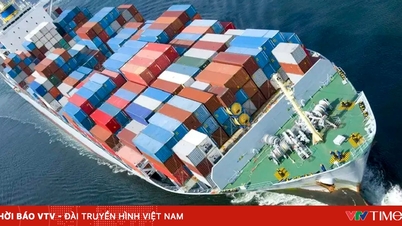
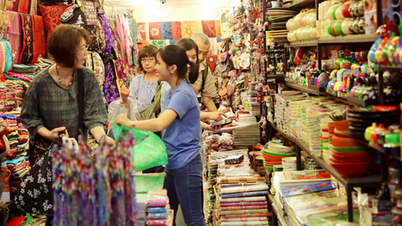

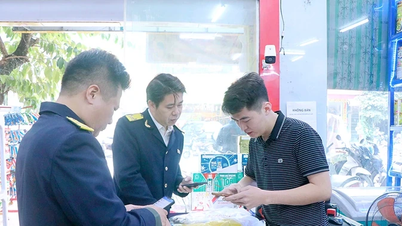



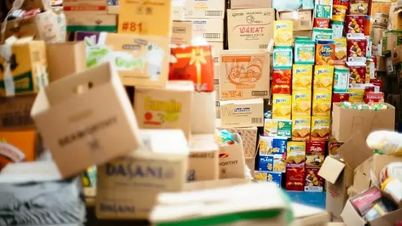

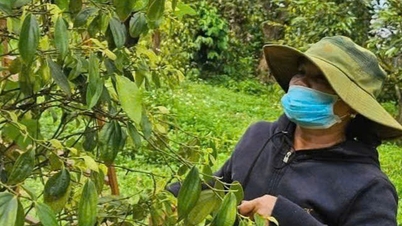

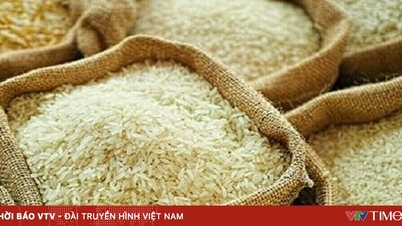



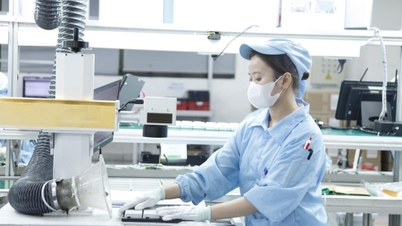

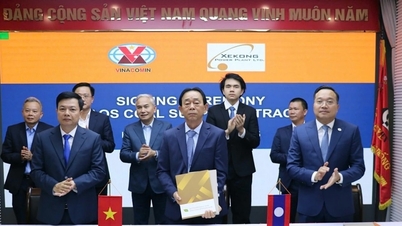






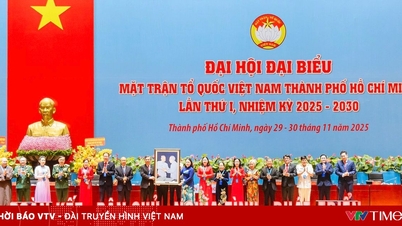

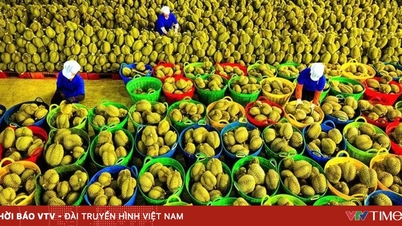

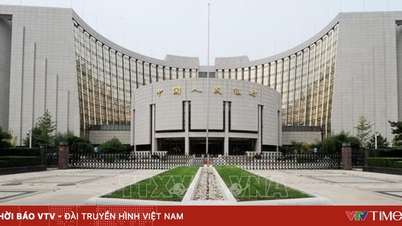
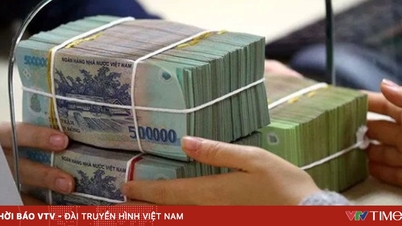






































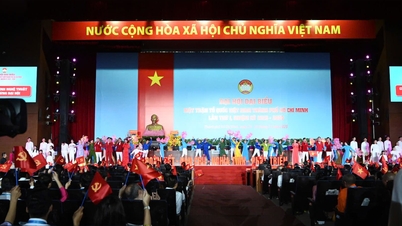



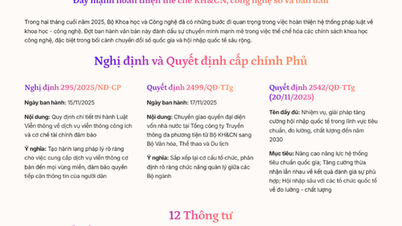

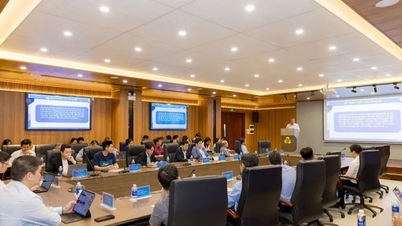
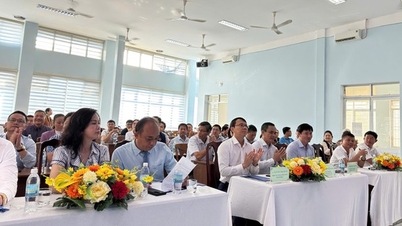
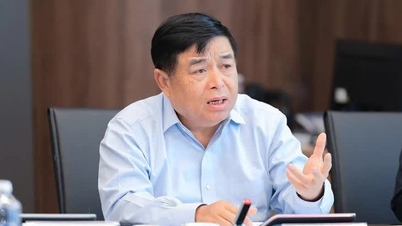
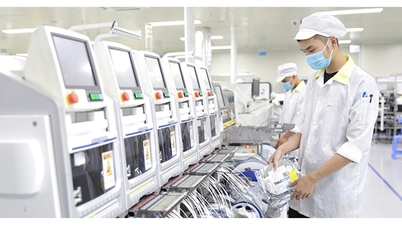
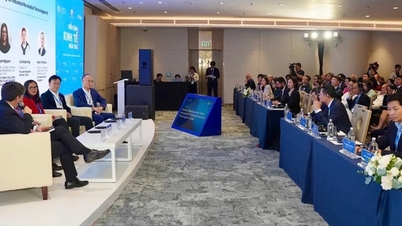
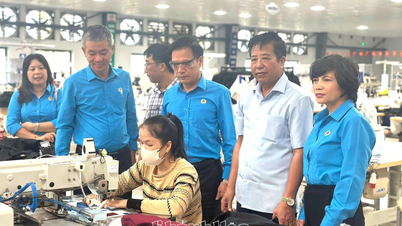

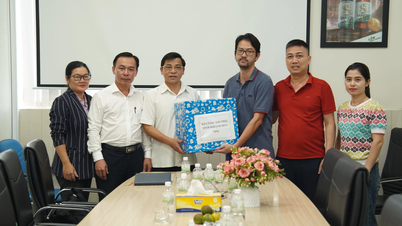
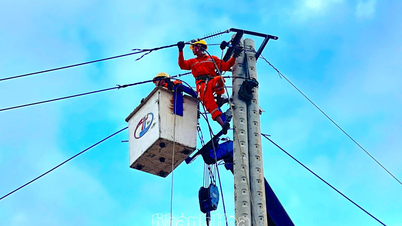
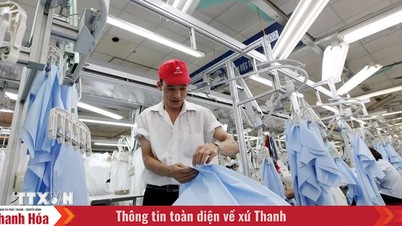



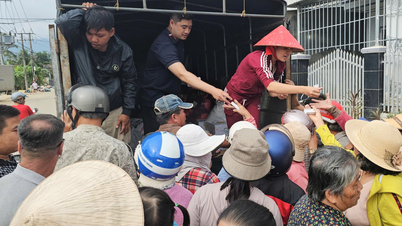












Comment (0)